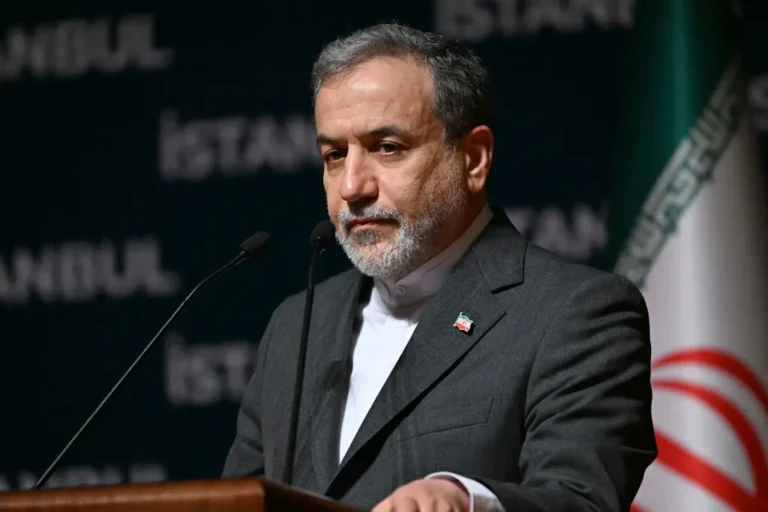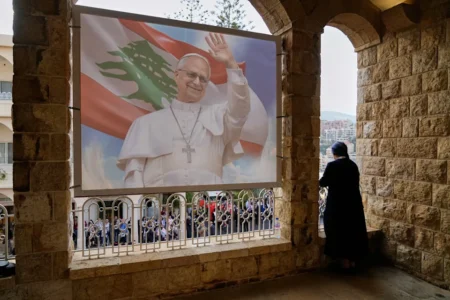Amid rising tensions in the Middle East, Iran has turned to Russia for urgent diplomatic talks. After a recent U.S. airstrike in Iran, the country’s foreign minister, Abbas Araghchi, quickly traveled to Moscow to meet with Russian President Vladimir Putin. The visit signals Tehran’s attempt to seek advice, build alliances, and prepare for the next phase of geopolitical challenges.
Just hours after attending emergency meetings in Istanbul with the Arab League and the Organization of Islamic Cooperation (OIC), Araghchi left for Russia. According to reports, he is expected to meet Putin behind closed doors in Moscow. The move highlights the urgency of Iran’s response and the importance it places on its ties with Russia.
In a press briefing following the OIC meeting, Araghchi called Russia a “trusted friend” and “strategic partner.” He said that the two nations support each other during times of crisis. He added that the Moscow visit aims to create a coordinated response and to consult on the growing threats in the region. His remarks suggest that Iran is preparing for possible long-term consequences of the U.S. strike.
Iran’s foreign minister also shared a strong warning on his social media handle. He said that the U.S. would have to face permanent consequences for its actions. Iran, he added, is ready to take every necessary step to protect its sovereignty, its people, and its national interests.
The U.S. airstrike has escalated fears of a broader conflict in the region. Military analysts believe that Iran’s quick outreach to Russia shows how serious the situation has become. They also warn that if the Iran-Russia axis becomes more active, the ongoing Middle East crisis could evolve into a much larger global conflict.
The U.S. has not yet responded directly to Iran’s trip to Moscow. However, officials in Washington continue to monitor the situation closely. The Biden administration has defended the airstrike, saying it was necessary to protect American assets and interests in the region. Iran, on the other hand, views it as a violation of its sovereignty and a dangerous provocation.
Russia has long played a key role in Middle Eastern diplomacy. It has strong ties with both Iran and Syria and often positions itself as a counterbalance to U.S. influence in the region. Putin’s meeting with Araghchi could mark a shift in how the region’s powers respond to future U.S. actions.
Experts note that Russia and Iran have worked together on key military and political issues in the past. Their alliance in Syria and shared resistance to Western policies make them natural partners during times of crisis. Tehran’s move to consult Putin so quickly after the U.S. strike shows that it sees Moscow as its top strategic ally in this moment.
Tensions have also been rising in other parts of the region. Recent attacks on U.S. bases and allies have raised alarms, and many fear that more violence could follow. Iran’s leadership is clearly trying to show that it will not remain passive. At the same time, it is working to avoid making any sudden moves without support from its allies.
Some observers see Iran’s approach as part of a larger strategy to build a new power bloc. By joining forces with Russia, Iran may be trying to counter U.S. pressure through diplomacy backed by military readiness. This could shift the balance of power in the region and reshape future alliances.
The meeting in Moscow is expected to include high-level talks not only with Putin but also with Russian defense and intelligence officials. The topics will likely include military cooperation, regional security plans, and how to respond to further U.S. actions.
Political analysts say the next steps by both Iran and Russia will be crucial. A stronger alliance between the two could increase tensions in the region and force other countries to take sides. The world is watching closely to see whether this new round of diplomacy will calm the crisis or push it toward a new and dangerous phase.
The Iranian public is also paying attention. Many people in Iran have expressed concern about the possibility of war. At the same time, there is strong support for the government’s efforts to defend the country and stand up to foreign pressure. The outcome of these talks in Moscow could shape not just Iran’s foreign policy but also its internal politics.
The situation remains fluid, and more developments are expected in the coming days. Iran’s trip to Russia shows that the crisis is far from over—and that diplomacy, alliances, and strategy are now at the center of a fast-moving global story.







